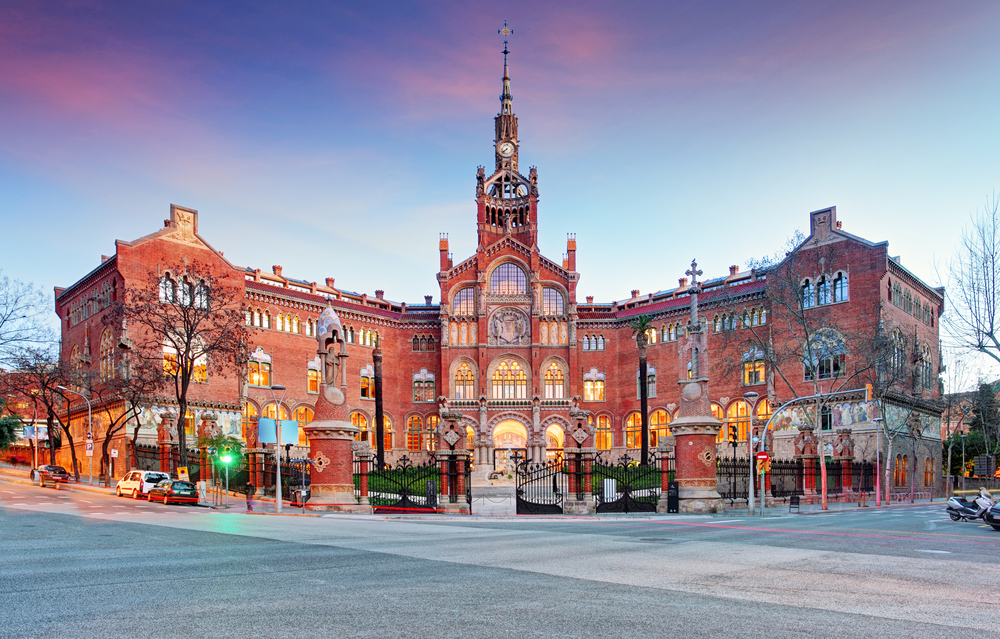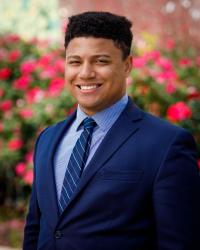Of all the great saints Christianity has had in its illustrious 2,000-year history, very few have earned the title “The Great.” Even fewer have been more influential and irreplaceable in their contributions to the integration of theology, pastoral care, and social responsibility in the life of the Church than St. Basil the Great of Caesarea (330–79). While Basil is renowned for his erudition and profound theological tracts and homilies, his indelible legacy extends far beyond the pulpit and the page. Basil was also a staunch social reformer.
In a world where government encroachment on the Church persists and where many look to the state as the benevolent solution to all of society’s ills, St. Basil’s enduring vision of a Church unbent by state power and animated by the call to serve inspires Christians to uphold their faith. It also reminds us of the power of private charity and philanthropy rooted in a flourishing civil society and social institutions as effective vehicles for advancing human dignity.
St. Basil was born to a wealthy and prestigious Christian family in Cappadocia, hailing from a lineage that featured over a dozen canonized saints. Basil received some of the best training in the ancient world, studying in Caesarea, Constantinople, and Athens before a radical spiritual conversion drew him to renounce an academic career, embrace an ascetic life, and tour monasteries across the deserts in Egypt, Syria, and Palestine.
Drawing inspiration from Eustathius of Sebaste’s “urban monasticism”—monks living in towns to assist the poor—Basil, from an early age, understood the social nature of the human person and believed that sanctity was best lived in service to society rather than retreating from it as did many of the hermits of his day. Basil nevertheless went on to found his own monasteries, laying the groundwork for Christian religious life, rooted in community living, prayer, work, and acts of mercy, inspiring monastic rules across the empire, including that of St. Benedict.
As he toiled to meet the material needs of the poor in his province, Basil also had to navigate an increasingly hostile relationship with the secular authorities. Around 370, Basil was elected Bishop of Caesarea at the height of the Arian crisis, one of the most turbulent times in the Church’s history. When secular powers sought to bend the Church’s teachings to suit their political aims, Basil was one of the few orthodox bishops with the courage to resist. However, his staunch opposition to Arianism put him in direct opposition with the Roman Empire’s most powerful figures, including Emperor Valens himself.
Valens passed through Caesarea in 371 and sent his prefect Modestus, the Eparch of the East, to prevail upon Basil with threats of confiscation, exile, torture, and even execution. Basil boldly refused to recant his condemnation of Arianism, stating that no earthly power, even the emperor, is “of more honor than God.” While we ought to render unto Caesar what is Caesar’s, Caesar’s authority ends where the conscience bound to God begins. When Modestus expressed astonishment, explaining that no one had ever spoken to him so boldly, Basil remarked, “Perhaps that is because you’ve never spoken to a bishop before.” Valens, though angered with Basil’s conduct, nonetheless respected him for his fortitude and even gave him a plot of land outside Caesarea after attending his liturgy.
Famine and plague were taking a devastating toll in Cappadocia, and Basil recognized the need for a more systematic approach to administering aid and meeting the demand for services. Drawing upon the gospel’s message to serve the “least of these” and using the land Valens granted him, in 369 Basil boldly called upon the nobility of Cappadocia to donate their wealth to support his most ambitious social project yet: what came to be called the Basiliad and what we would recognize as the world’s first hospital. It was unlike anything seen before in the ancient world. The Basiliad applied a holistic understanding of healing, not merely curing the body, but also curing the soul, educating the mind, and reminding the downtrodden of their value, which suffering and poverty so often strip away. In many ways, it was the culmination of Basil’s social teaching that every person, being made in the image of God, was of inestimable worth.
While apothecaries and healthcare institutions were common at the time, Basil’s new “city outside the city,” as his lifelong friend and fellow bishop St. Gregory Nazianzus described it, was the first built with the express intention of caring for the poor. Within a few years, Basil’s wondrous complex became a hospital for the sick, a respite for weary travelers, a home for orphans, and a trade school for those seeking to learn occupations necessary for life. Unprecedented even by Christian standards, Basil also established a dedicated area for lepers, the most unfortunate people in society at the time, who lived in terrible agony and were resigned to a painful death. He himself bandaged and washed these patients, spent time with them, and embraced them.
Basil’s efforts prompted a major social revolution that challenged the prevailing hypocrisy, corruption, and uncontrolled self-interest of fourth-century Caesarea and became a model for healthcare provision across the modern world. In addition to its charitable initiatives, the Basiliad prompted Christians to redefine their understanding of responsibility for the vulnerable. In a time when many Christians regarded healing and medicine as a pagan Greek practice, St. Basil’s work showed that medicine was an art and a model for the cure of our souls, too, vouchsafed by God as a reminder that all healing, ultimately, comes from Him.
Perhaps most importantly, Basil’s ambitious project was not imposed by imperial edict. Although it was built on land given by the emperor, the Basiliad was a private initiative that was funded, built, and maintained by the Church and the local community. It stood as proof that an entrepreneurial spirit and a strong civil society can be a powerful tool for advancing the common good without top-down government solutions.
Suffering from chronic ailments for much of his life, Basil died at just 49 years of age. During his funeral, Gregory spoke at length of Basil’s many contributions to the Church, lauding him for his nobility in the face of persecution and his steadfast support for the poor.
Basil started a new trend in his short life. In the years following his death, more hospitals spread across the Roman Empire, becoming commonplace within one century. Though the Basiliad no longer exists, its legacy lives on through every hospital, orphanage, and shelter inspired by the Church’s mission to care for the vulnerable. While mutual aid, fraternal societies, and private initiatives have been crowded out by top-down impersonal government solutions to the ever-persistent issue of poverty, the Basiliad stands as an enduring example of churches, communities, and individuals uniting in service to advance the inviolable dignity of every human person made in God’s image that no temporal power can usurp.
Most glorious and holy hierarch of Christ, St. Basil, pray for us!

